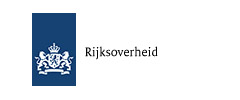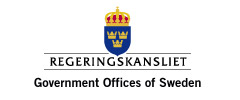Eco-Activism: What it is and Why it is Relevant
In light of this year’s theme “New Activism”, Women and Environment Network WECF, Women Engage for a Common Future, will organize a workshop on eco-activism during Africaday in Amsterdam. What is eco-activism and what are its challenges?
13.04.2018 |Audrey Van Schoote

Just like any other form of activism, eco-activism is simply a form of engagement in social and/ or political campaigns with the aim of preventing damage to the environment.
In the past several decades, eco-activism has been getting an increasing amount of attention and agents, as the environmental problem is becoming increasingly urgent to resolve. In South-East Asia oceans have become plastic landfills, everywhere our soils are filled with chemicals from pesticides, contaminating our water, and our forests are being destroyed for mining or building purposes.
The most impressive voices are those of people who experience the impacts of climate change and pollution on a daily basis. For example, in Nigeria, we witness women working barehandedly with e-waste, taking the risk of getting cancer. WECF’s partner, Priscilla Achakpa, from Women Environment Program, works with grassroots women to make them aware of those risks and to build their capacity by giving women a voice in policymaking processes. You can learn more about the work of WEP during the WECF workshop. https://www.women2030.org/2018/01/24/priscilla-achakpa/
Eco-activism is relevant because it does not limit itself to the protection of the natural world. Instead, it also ensures that some are not disproportionately affected by environmental degradation by giving them the opportunity to voice their concerns. Eco-activism is therefore not just about ecology: it’s also one of the best ways to bring about social and political change. https://www.theguardian.com/environment/2018/mar/09/un-moves-towards-recognising-human-right-to-a-healthy-environment
As a matter of fact, there is a strong relationship between environmental protection and human rights. Indeed, last month the United Nations have moved towards recognizing the right to a healthy environment as a human right. The fulfilment of the fundamental human rights go hand in hand with environmental protection as both people and environment rely on each other for their well-being. As Lisa Mortimore quoted the wise Pesek, “human and environmental health are indissolubly bound”. https://dspace.library.uvic.ca:8443/bitstream/handle/1828/4653/Mortimore_Lisa_PhD_2013.pdf?sequence=3
So, let’s work together and discuss the challenges and successful methods to organize change, and join us at the Africaday in Amsterdam, Saturday, April 14, 2018! Hurry to book your ticket because our workshop is nearly sold out!
https://www.afrikadag.nl/inschrijven
Related News
How was your #PlasticFreeLent?
The last 40 days WECF ran a different Lent, a Plastic-free Lent!
31.03.2018
Implementing Agenda 2030 in Georgia: Where Are We Now?
WECF organised with Georgian government and the UN a workshop on the Sustainable Development Goals in Tbilisi, 19-21 February 2018
22.02.2018 | Tbilisi, Georgia
Gender, Chemicals and Waste high level event in Abuja, Nigeria
Women Environment Programme (WEP) Nigeria, and WECF organise high-level meeting in Abuja, Nigeria on Gender, Chemicals and Waste, on 10-12 of January 2018
10.01.2018
#BeatPollution: WECF at UNEA3 in Nairobi
Reflections on the UN Environmental Assembly in Nairobi “Towards a Pollution free Planet
11.12.2017
What Has Gender Got To Do with Chemicals?
WECF, WEP and Balifokus present new publication and documentary film at United Nations
05.12.2017







































